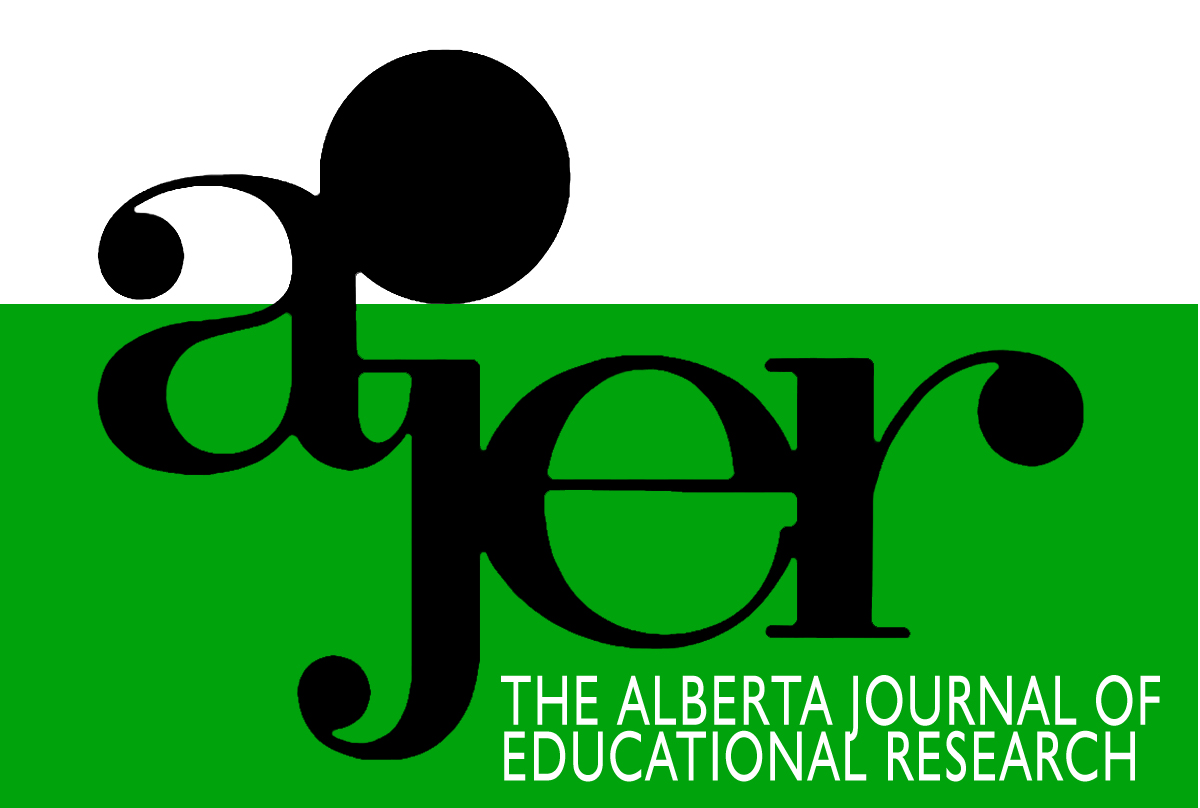In Their Own Voices: First Nations Students Identify Some Cultural Mediators of Their Learning in the Formal School System
DOI:
https://doi.org/10.55016/ojs/ajer.v48i2.54917Abstract
Theories of cognition argue that children develop thinking, communication, learning, and motivational styles consistent with the culture into which they are socialized. Cultural socialization, therefore, influences how students learn, particularly how students mediate, negotiate, and respond to curriculum materials, instructional strategies, learning tasks, and communication patterns in the classroom. But what specific aspects of culture influence the learning of a particular group of students? The author set out to answer this question in relation to First Nations students by conducting research among First Nations students in a Winnipeg high school. Five culturally relevant themes were identified that provide insights into the development of appropriate instruction for preservice teachers for the enhancement of cross-cultural communication, the design and implementation of assessment strategies, and the creation of effective instructional materials. These are traditional Aboriginal approaches to learning, patterns of oral interaction, concepts of self, curriculum relevance, and the educator's interpersonal style.Downloads
Published
Issue
Section
License
UNIVERSITY OF ALBERTA COPYRIGHT LICENSE AND PUBLICATION AGREEMENT
If accepted, authors will be asked to sign a copyright agreement with the following points:
A. Where there is any inconsistency between this Copyright License and Publication Agreement and any other document or agreement in relation to the same subject matter, the terms of this Agreement shall govern.
B. This document sets out the rights you are granting in relation to publication of your article, book review, or research note entitled (the “Article”) through inclusion in the academic journal titled Alberta Journal of Educational Research (the “Journal”) published through the Faculty of Education, representing the Governors of the University of Alberta (the “Journal Editor”).
C. There will be no payment to you for this publication and grant of rights. In consideration of the agreement to publish the Article in the Journal:
1. You are warranting that:
- the content of the Article is your original work, and its content does not contain any material infringing the copyright of others; or, where the Article is not entirely your original work, you have obtained all necessary permissions in writing to grant the rights you are giving in this agreement;
- the content of the Article does not contain any material that is defamatory of, or violates the privacy rights of, or discloses the confidential information of, any other person;
- the Article has not been published elsewhere in whole or in part, and you will not allow publication of the Article elsewhere without the consent of the Journal Editor;
- the names of all co-authors and contributors to the Article are:
2. You agree to license the copyright in the Article to the Journal Editor, on a worldwide, perpetual, royalty free basis; and to the extent required by the terms of this agreement. You shall retain the right at all times to be acknowledged as the/an author of the Article.
3. You further agree that the Journal Editor has the entitlement to deal with the Article as the Journal Editor sees fit, and including in the following manner;
- The right to print, publish, market, communicate and distribute the Article and the Journal, in this and any subsequent editions, in all media (including electronic media), in all languages, and in all territories, ing the full term of copyright, and including any form of the Article separated from the Journal, such as in a database, abstract, offprint, translation or otherwise, and to authorize third parties to do so;
- The right to register copyright of the Journal;
- The right to edit the Article, to conform to editorial policy as the Journal Editor sees fit.
4. If any co-author or contributor to the Article does not sign this agreement, the Journal Editor reserves the right to refuse to publish the Article.



